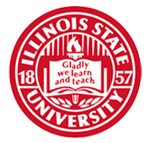Abstract
Clinical education standards for speech-language pathology and nursing programs indicate the need for students to gain experience with interprofessional collaborative practice (ICP). However, colleges not affiliated with hospitals struggle to offer experiences between healthcare disciplines. The purpose of this paper is to present a case study as a model for interprofessional healthcare simulation that can be applied to schools that have limited access to a variety of professional programs and few complimentary medical specialties at their home institution. The partnership of a masters in speech-language pathology (MS-SLP) program at a public state sponsored institution and a bachelors of science in nursing (BSN) program at a private college provides insights on model effectiveness. A strong partnership between simulation facilitators allowed for agreement on learning objectives, mapping the experience from pre-brief to debrief, and maintenance of unique professional roles for greater authenticity. MS-SLP and BSN students reported high ratings of confidence, understanding of other professional roles, and a shared respect for the unique roles and responsibilities of each team member. Strengths and challenges of the approach are discussed.
Recommended Citation
Busch, C.,
Gilbertson, L.,
Gullickson, C.,
&
Laessig, E.
(2022).
Intercampus Health Care Simulation Model for Development of Students’ Interprofessional Socialization and Competency.
Teaching and Learning in Communication Sciences & Disorders, 6(2).
DOI: https://doi.org/10.30707/TLCSD6.2.1660595992.570082




